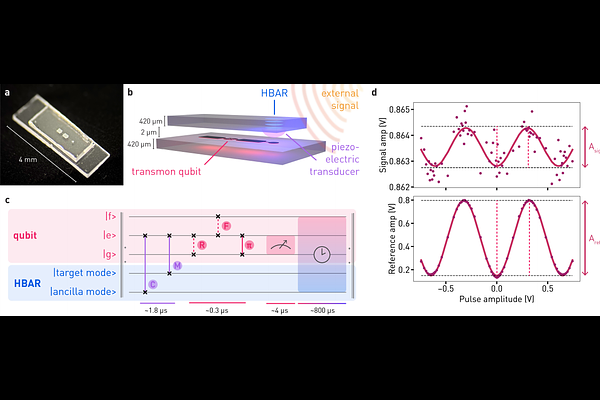An Ultra-Cold Mechanical Quantum Sensor for Tests of New Physics

An Ultra-Cold Mechanical Quantum Sensor for Tests of New Physics
Andraz Omahen, Simon Storz, Marius Bild, Dario Scheiwiller, Matteo Fadel, Yiwen Chu
AbstractInitialization of mechanical modes in the quantum ground state is crucial for their use in quantum information and quantum sensing protocols. In quantum processors, impurity of the modes' initial state affects the infidelity of subsequent quantum algorithms. In quantum sensors, excitations out of the ground state contribute to the noise of the detector, and their prevalence puts a bound on rare events that deposit energy into the mechanical modes. In this work, we measure the excited-state populations of GHz-frequency modes in a high-overtone bulk acoustic wave resonator (HBAR). We find that the population of the first excited state can be as low as $P_p$=(1.2$\pm$5.5)$\times10^{-5}$, corresponding to an effective temperature of 25.2 mK, which are upper bounds limited by imperfections in the measurement process. These results compare favorably to the lowest populations measured in superconducting circuits. Finally, we use the measured populations to constrain the amplitude of high-frequency gravitational waves, the kinetic mixing strength of ultra-light dark matter, and non-linear modifications of the Schr\"{o}dinger equation describing wavefunction collapse mechanisms. Our work establishes HBARs as a versatile resource for quantum state initialization and studies of fundamental physics.